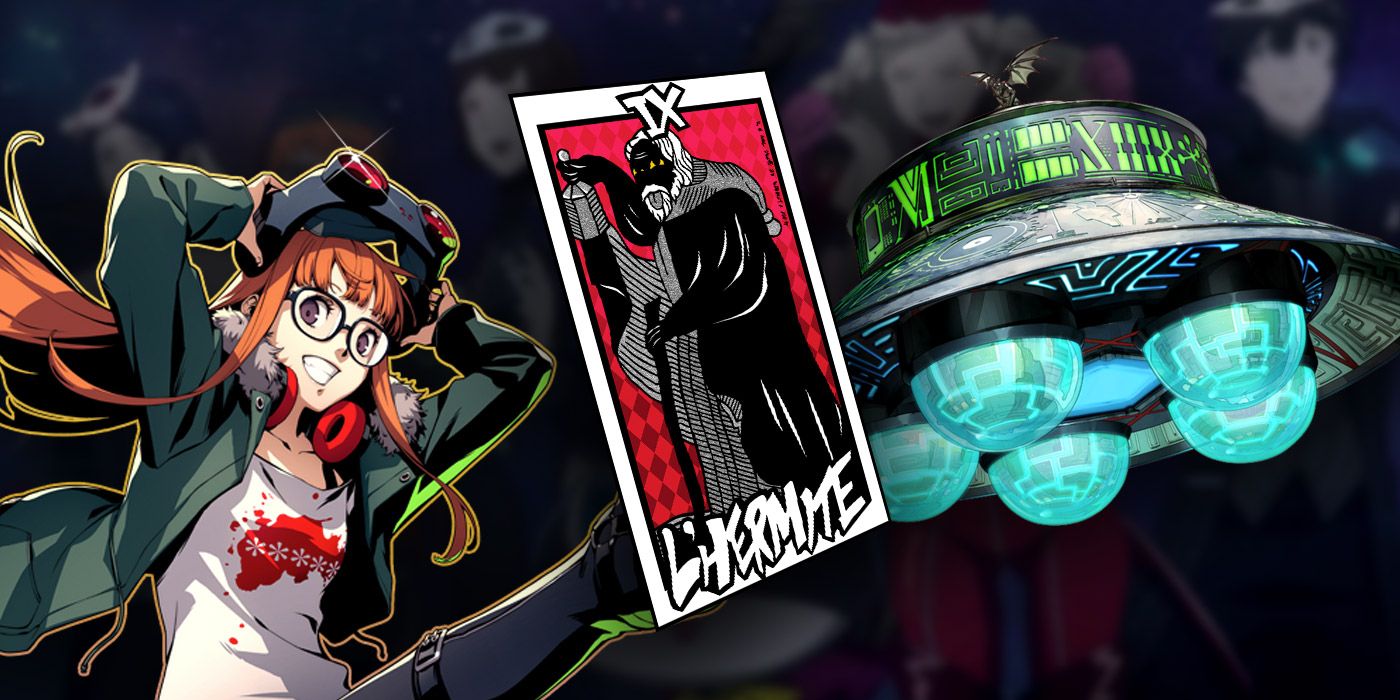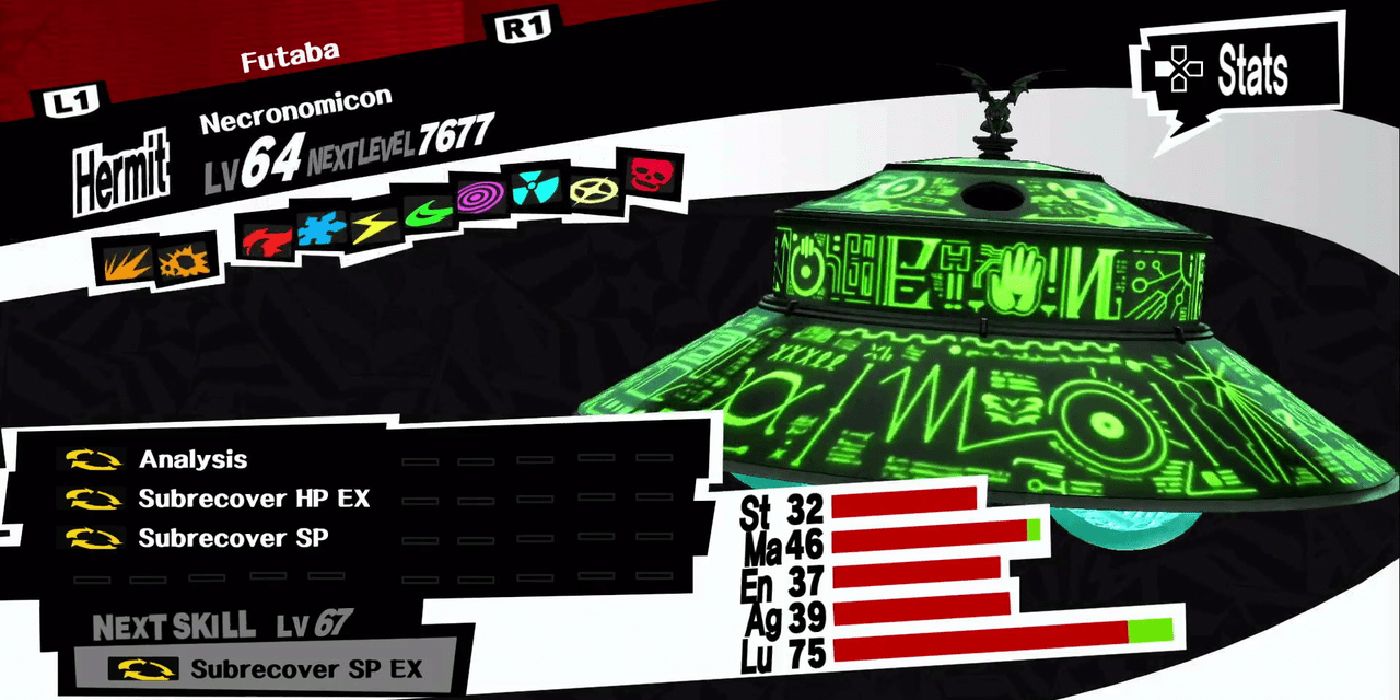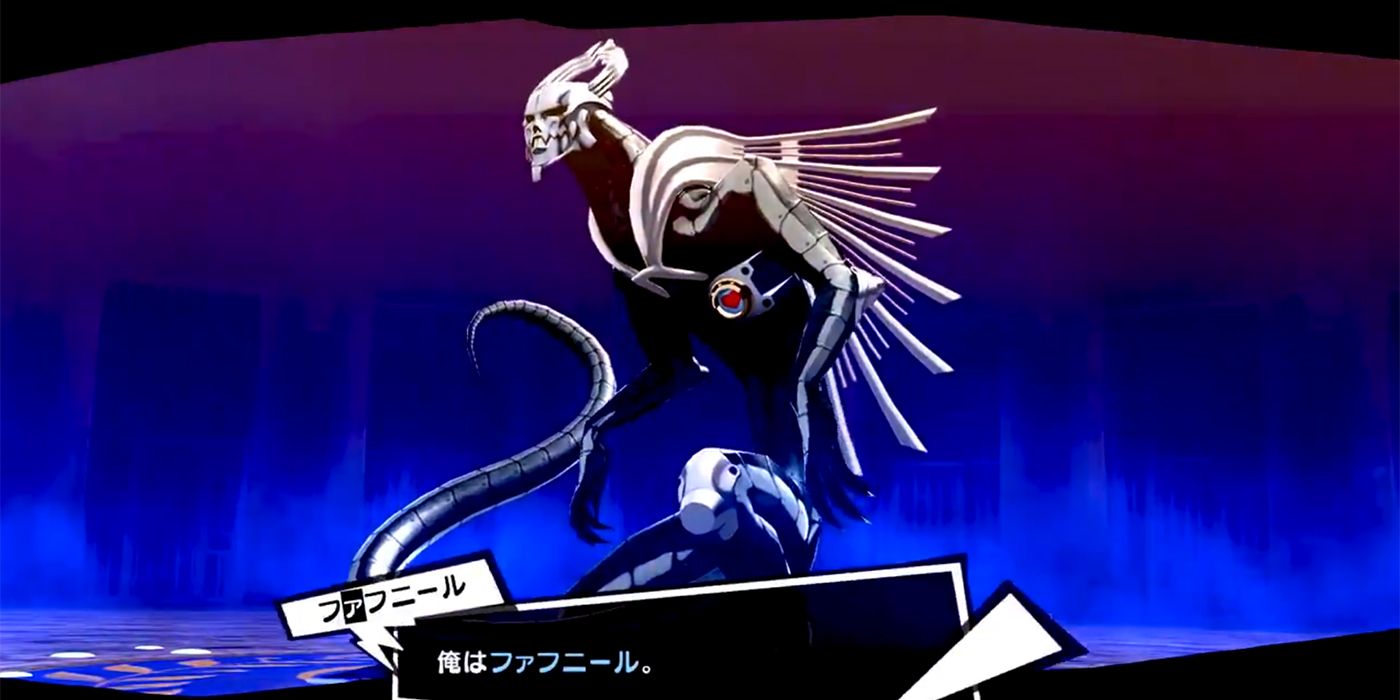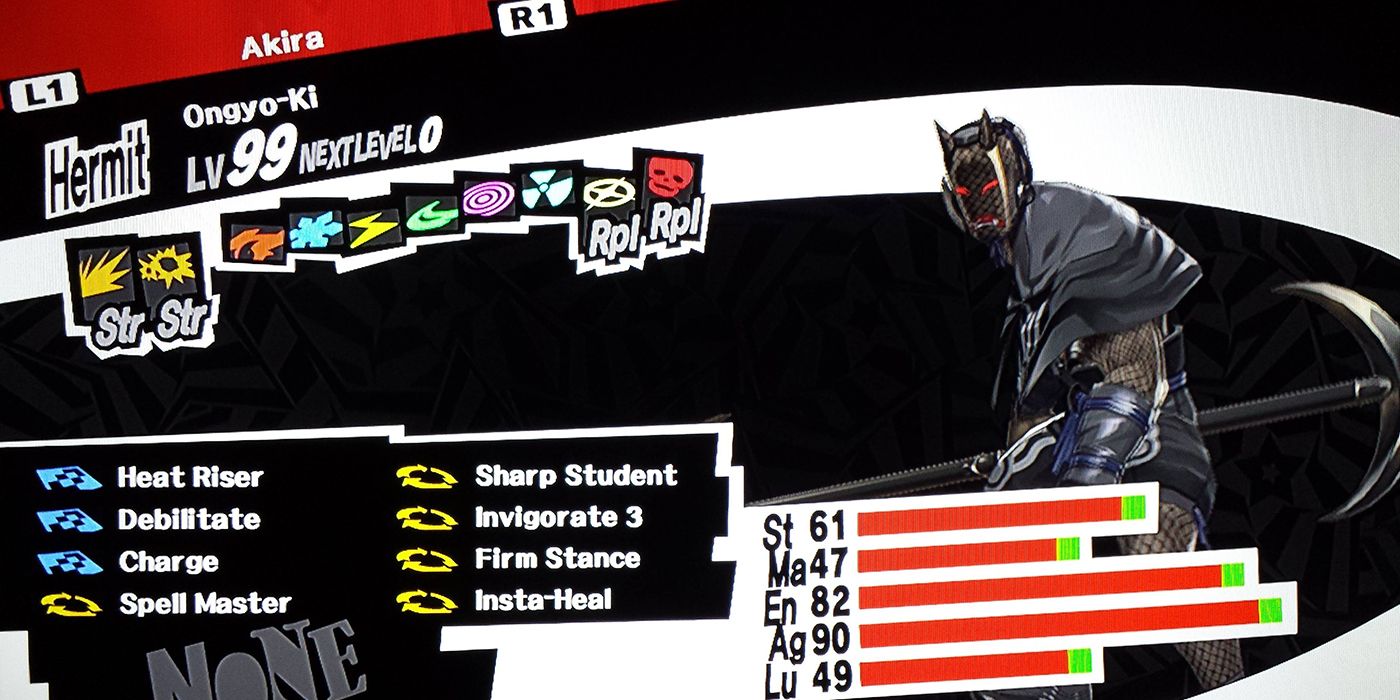As the major arcana go, the Hermit's significance is fairly easy to grasp. Traditionally depicted as a man with a lantern and walking stick in a remote location, such as the top of a hill, or a cave, the Hermit represents hidden insight, introspection, and solitude. In Persona 5, the Hermit's confidant, is none other than Futaba Sakura, who eventually serves as the Phantom Thieves' navigator.
When players first meet Futaba, she is a borderline hikikomori, which is a Japanese term referring to people—particularly youth—with extreme reclusive or agoraphobic tendencies. Like Persona 5's other confidants, Futaba herself represents the good, or upright qualities of her arcana, while her situation represents the inverted, or negative qualities of the Hermit.
The time she spent in isolation allowed her to become an incredibly skilled hacker, offering the team crucial wisdom and insight, but said isolation is a direct result of guilt and trauma pertaining to her mother's death. Another aspect of the Hermit arcana is that it can represent rest and recovery, which is again fitting for Futaba, given her long slumber after the Thieves clear her palace.
In the context of tarot readings, the Hermit is usually more of a destination than a guide, referring to a place or state of mind where the Fool can gain clarity and self-awareness. But it is fitting that Futaba, as the adoptive daughter of Sojiro Sakura, the Hierophant arcana, would serve as the party's guide. It's something akin to carrying on a family tradition.
Medjed and Necronomicon - The Book of the Dead
Futaba is the only Phantom Thief whose persona does not refer to a fictional or historical outlaw, like Captain Kidd of the Chariot Arcana, or Robin Hood of the Justice arcana. Rather, her UFO-shaped Necronomicon is still a clever reference. The player comes to learn that when Futaba started hacking, she created the pseudonym Medjed, which is later coopted by other hackers who come after the Thieves. Medjed is the name of an Egyptian deity mentioned in the Book of the Dead, which is a funerary text describing burial rituals. That detail is important, because the infamous Necronomicon—the invention of the American cosmic horror author, H.P. Lovecraft—roughly translates to Book of the Dead.
Another important feature about the Egyptian god Medjed, is that he is unseen, and incredibly secretive. There are only a few hieroglyphs referencing him, and apart from the fact that he can fly and fire laser beams from his eyes, the only thing that is known about him is that he is a member of the House of Osiris, and Osiris is the lord of the underworld and judge of the dead. Similarly, the Necronomicon, is a work of fiction whose mystique lies in Lovecraft's repeated, cryptic references to the text. Readers rarely get any insight into the tome's contents, save that it is a grimoire or magical spell book full of forbidden knowledge, though other creators and fiction have featured the book as well, including the Evil Dead franchise.
Fafnir - Dragon of Greed
Fafnir is the second-most powerful Hermit persona, and one of the weirdest persona designs in Persona 5. Somehow, Atlus transformed a fairly standard, greedy dragon from Norse mythology into a cybernetic nightmare serpent...with an adorable red heart symbol on its chest. That heart is no cute accident, however.
Like many personas, including Yusuke's Goemon from the Emperor Arcana, Fafnir meets a tragic, bloody end. According to Norse mythology, Fafnir was originally a son of the dwarf king, Hreidmar, who was transformed into a dragon when he came into possession of cursed treasure: the gold of Andvari and the ring Andvaranaut—items that lead to the death of whoever possesses them. After the gold transforms Fafnir into a dragon, Fafnir's brother, Regin, sends his foster son, Sigurd, to kill Fafnir and return with the loot.
Sigurd slays the dragon with the legendary sword Gram, and returns to Regin with the gold and Fafnir's heart, which he intended to cook and eat. Regin was also cursed by his greed for Adnvari's gold however, and planned on killing Sigurd to keep the gold for himself. Fortunately, Sigurd tastes Fafnir's blood while cooking the dragon's heart, which somehow teaches him the language of the birds. Odin's crows, possessing the power of foresight, inadvertently warn Sigurd of Regin's betrayal, allowing the hero to dispatch his avaricious father.
The heart symbol on Fafnir's chest refers to the secret wisdom the dragon possesses, which is ultimately a greater treasure than the gold. Like many mythological cautionary tales, the morality is a little on the nose, but it's very cool that Atlus gave Fafnir's source material a subtle nod despite their unique take on his look.
Ongyo-Ki - The First Ninja
Ongyo-Ki's name translates to "Invisible Demon," and while he is not a ninja in the strict, Jin Sakai sense, his deeds are believed to have inspired a rich tradition of shadowy assassination. Ongyo-Ki is one of four demons who answered to Chikata of the Fujiwara clan from the middle of Japan's Heian period. According to legends and literature from the period, Chikata Fujiwara planned on using his barbershop quartet of demons to revolt against the imperial court, only to be undone by a waka poem that banished the demons.
The other three demons in Fujiwara's retinue are Kin-Ki, the gold demon of wealth; Fuu-ki, the demon of wind; and Sui-ki, the demon of water. These three demons are not only available as personas in Persona 5: they serve as the reagents required to fuse Ongyo-Ki after the player has maxed out the Hermit confidant. These three demons can be recruited fairly easily from palaces or Mementos, but players who are having trouble obtaining them should consult a Persona 5 fusion guide to make the process as simple as possible.
The secret to Ongyo-Ki's power—and the reason he is suitable as the foremost member of the Hermit arcana—is his ability to suppress his aura, which makes him completely undetectable by enemy foes. He is the ultimate hidden, mythological assassin, and, according to Japanese folklore, the inspiration for shinobi.
Persona 5 and Persona 5 Royal are available now for the PlayStation 4.




